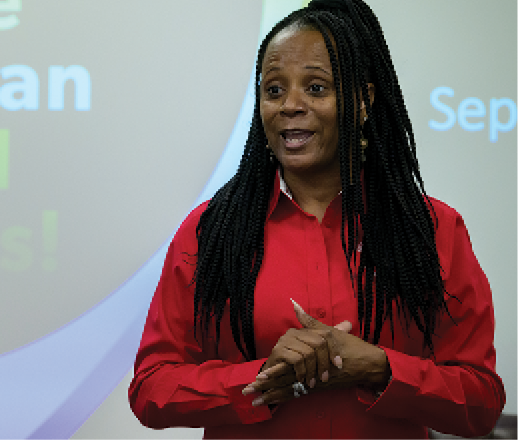We are Member Powered and Union Strong!
ORGANIZING FOR AN ESP BILL OF RIGHTS


SEEKING RESPECT & RECOGNITION
There’s an exciting buzz in the air at educator unions across Maryland and it’s about the fight for respect and recognition for all ESPs. Right now, education support professionals (ESPs) are organizing to build presence, strength, and power in a campaign focused on a bill of rights that defines the issues long nagging these dedicated employees and now threatening not only the recruitment of new employees but the retention of dedicated veteran employees.

It’s true that the pandemic raised the profile of ESPs among the families and fellow educators they continued working with, but that has yet to translate into the higher wages that all ESP deserve. Too many ESPs work second jobs and struggle to provide for their families, buy homes, save for their futures, and afford community or four-year college tuition for their children to learn a trade and plan a career. Many ESPs are second- or third-generation school employees who take pride in the contributions they make to their communities. The looming threats of privatization by school districts, which would import even lower-paid workers from outside areas, risk the stability of schools and communities and further undermine the value of ESPs and their jobs.
“We want to build our strength at the bargaining table and that starts with building power and purpose in every county.”
— STACY TAYMAN CO-CHAIR, ESP ORGANIZING COMMITTEE
DOING MORE WITH LESS
With continuing staff shortages, escalating student behavioral challenges, increasing responsibilities, a continuing lack of respect, and the rising costs of healthcare benefits, ESPs are being asked to do more—too often without the resources they need and the compensation they deserve. These are workload, morale, and stress issues that cause burnout and resignations.


Some school board members and community and state officials have refused time and again to recognize support staff and their contributions or to provide adequate, living wages. While the Blueprint for Maryland’s Future provides funding to add staff in some ESP positions, there is more to do. With recruitment and retention so difficult, the welfare and safety of students and fellow staff is at risk.
ESP member-organizers are leading the way and building power at information and listening sessions across the state and attendance is growing at every event. ESP Organizing Committee Co-Chair Stacy Tayman, a 25-year veteran ESP and president of her Calvert County union, said, “We want to build our strength at the bargaining table and that starts with building power and purpose in every county. As ESPs, we may have many different job titles, but we have common struggles on the job—whether it is fair pay, respect, safety, workload, or opportunity. Our ESP Bill of Rights stakes our claim to what we believe are our rights as employees and sets us up to improve our jobs through the bargaining process.”

MEMBERS ARE BUILDING UNION POWER
“We sent member surveys that included four essential questions to ESP members in every county,” added organizing committee co-chair Sam Walters, a Howard County instructional assistant. “From those survey results, and our statewide and local listening sessions, we’ve started writing our ESP Bill of Rights, which will be the guiding document for bargaining goals created by members and for members—and used by every local ESP union as the foundation of their own bargaining platform.”

